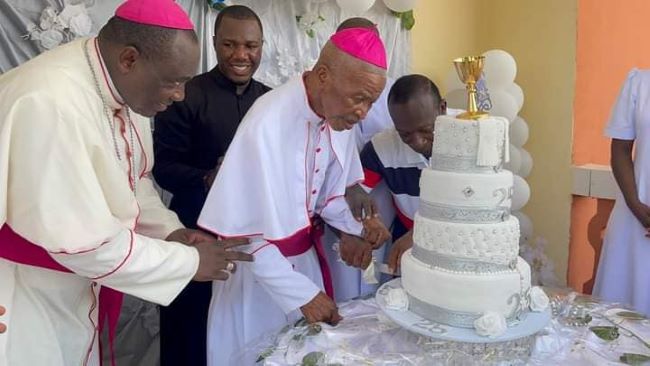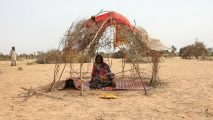Categories
Archives
- April 2024
- March 2024
- February 2024
- January 2024
- December 2023
- November 2023
- October 2023
- September 2023
- August 2023
- July 2023
- June 2023
- May 2023
- April 2023
- March 2023
- February 2023
- January 2023
- December 2022
- November 2022
- October 2022
- September 2022
- August 2022
- July 2022
- June 2022
- May 2022
- April 2022
- March 2022
- February 2022
- January 2022
- December 2021
- November 2021
- October 2021
- September 2021
- August 2021
- July 2021
- June 2021
- May 2021
- April 2021
- March 2021
- February 2021
- January 2021
- December 2020
- November 2020
- October 2020
- September 2020
- August 2020
- July 2020
- June 2020
- May 2020
- April 2020
- March 2020
- February 2020
- January 2020
- December 2019
- November 2019
- October 2019
- September 2019
- August 2019
- July 2019
- June 2019
- May 2019
- April 2019
- March 2019
- February 2019
- January 2019
- December 2018
- November 2018
- October 2018
- September 2018
- August 2018
- July 2018
- June 2018
- May 2018
- April 2018
- March 2018
- February 2018
- January 2018
- December 2017
- November 2017
- October 2017
- September 2017
- August 2017
- July 2017
- June 2017
- May 2017
- April 2017
- March 2017
- February 2017
- January 2017
- December 2016
- November 2016
- October 2016
- September 2016
- August 2016
- July 2016
- June 2016
Featured
 Bishop Francis T. Lysinge @ 25!
Bishop Francis T. Lysinge @ 25!  Understanding the Biya Francophone regime’s support for the Israeli genocide in Gaza
Understanding the Biya Francophone regime’s support for the Israeli genocide in Gaza  Poverty under Biya: Cameroonians embrace Chinese language for brighter futures
Poverty under Biya: Cameroonians embrace Chinese language for brighter futures  Cameroon is broken: Who can fix it?
Cameroon is broken: Who can fix it?  Ethiopia: U.S Senator Cardin Statement on the Killing of Bate Urgessa
Ethiopia: U.S Senator Cardin Statement on the Killing of Bate Urgessa
Most Commented Posts
 4 Anglophone detainees killed in Yaounde
4 Anglophone detainees killed in Yaounde
19 comments Chantal Biya says she will return to Cameroon if General Ivo Yenwo, Martin Belinga Eboutou and Ferdinand Ngoh Ngoh are sacked
Chantal Biya says she will return to Cameroon if General Ivo Yenwo, Martin Belinga Eboutou and Ferdinand Ngoh Ngoh are sacked
13 comments Anglophone Nationalism: Barrister Eyambe says “hidden plans are at work”
Anglophone Nationalism: Barrister Eyambe says “hidden plans are at work”
12 comments The Anglophone Problem – When Facts don’t Lie
The Anglophone Problem – When Facts don’t Lie
12 comments Largest wave of arrest by BIR in Bamenda
Largest wave of arrest by BIR in Bamenda
10 comments
Latest Tweets
Featured
-

Bishop Francis T. Lysinge @ 25!
-

10 Million Cameroonians lived on less than $1.80 per day
-

Football: Xavi to remain as Barcelona coach
-

Biya regime delays bond sale amid regional market strain
-

Historic agreement between Nigeria and Cameroon to tackle wildlife crime
-

Southern Cameroons refugees in Nigeria receive farm seedlings
-

Douala: Investment Forum wraps up with honors for investment champions
© Cameroon Concord News 2024
19, November 2019
Open letter to President Macron on human rights abuses in Cameroon 0
Dear President Emmanuel Macron,
We, the intellectuals, writers, and human rights lawyers undersigned, write to implore France to strengthen its commitment to the resolution of the Anglophone crisis in Cameroon, described by some analysts as “Rwanda in slow motion”.
Specifically, we respectfully urge France to use its considerable influence on the government of President Paul Biya to encourage Cameroon to openly join the peace talks led by Switzerland, which would make it possible to stop the murders and atrocities perpetrated in the country. North West and South West regions of the country. A durable solution must come from a mediation process that includes English-speaking armed separatist groups and non-violent civil society leaders.
It’s urgent; the dehumanizing violence in Cameroon must not reach the same scale as that which occurred in Rwanda in 1994. On the one hand, non-state armed groups and bandits use machetes to maim, torture and decapitate, on the other hand. Government forces commit crimes against humanity such as extrajudicial executions and burnt villages. Journalists, opposition politicians and other civilians are wrongly detained. More than half a million Anglophones are displaced while fleeing violence. Hundreds of thousands of children have missed school for more than three years, and according to recent United Nations reports, 1.4 million people are at risk of starvation.
France and the international community may be aware that the recent Grand National Dialogue organized by Cameroon did not adequately address the Anglophone crisis. As a result, violence has persisted in English-speaking areas since the end of the dialogue on October 4.
The Great National Dialogue and the release of political prisoners have been a step in the right direction. However, the dialogue does not address the root causes of the conflict; it excluded any discussion of other forms of governance and did not offer sufficient security guarantees to diaspora and separatist leaders. In other words, it did not put an end to the atrocities or produced an acceptable or viable political solution for the English-speaking regions. The talks led by Switzerland now seem to be the only way to reach an appropriate political solution, through an inclusive negotiating table.
Mr. President, we hope that you personally and your country, France, value your historical relations and your ties with Cameroon, and wish for the return of peace in this country. We believe that France does not want to be complicit in another genocide in Africa after Rwanda and that it take all possible measures now. Please strongly promote the Swiss talks so that villainous violence can cease immediately, that human rights are respected and that normalcy returns to English-speaking and French-speaking Cameroon.
Cameroonians and Cameroonians, brothers, sisters and friends of Cameroon in France as well as the whole world are waiting for you.
Center for Human Rights, Faculty of Law, University of Pretoria, South Africa